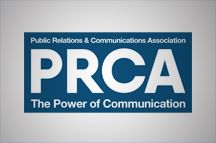Responding to the launch of the Lobbying Register in Scotland today, the PRCA has welcomed its broad scope, while warning that the “burdensome and unnecessary amount of information” required from registrants and statutory code of conduct risk deterring engagement with the Scottish Parliament.
Organisations and individuals carrying out activities which meet the Lobbying (Scotland) Act 2016’s definition of “regulated lobbying” are required to record those details on the Lobbying Register in Scotland, including those working in-house and within consultancies.
The Act’s definition of lobbying is specifically limited to oral and face-to-face communications with relevant individuals (MSPs, members of the Scottish Government, the Scottish Government’s Permanent Secretary, and Scottish Government Special Advisors) which have the aim of informing or influencing decisions on behalf of an organisation or client. Regulated lobbying only applies to paid practitioners and there are a series of exemptions including, for example, for some small organisations or for those engaging with their “local” MSP.
Registrants are required to disclose each instance of regulated lobbying – including who they engaged with, an “accurate and meaningful” description of the purpose of the lobbying, and the name of the individual(s) lobbying – at least every six months. Registration must take place within 30 days of the first instance of regulated lobbying.
 Francis Ingham MPRCA, Director General of the PRCA, said: “The inclusion of in-house lobbyists, who represent 80% of our industry, combined with the fact that the Lobbying Register in Scotland covers MSPs, rather than simply Ministers, demonstrates a far better grasp of the realities of lobbying than a majority of statutory regimes.
Francis Ingham MPRCA, Director General of the PRCA, said: “The inclusion of in-house lobbyists, who represent 80% of our industry, combined with the fact that the Lobbying Register in Scotland covers MSPs, rather than simply Ministers, demonstrates a far better grasp of the realities of lobbying than a majority of statutory regimes.
“As it launched, it has to also be noted that the Lobbying Register in Scotland is far from perfect. By including only face-to-face communication, it ignores a great deal of lobbying conducted through letters, emails, petitions, and campaigning websites. By not extending to all of those who are lobbied, it creates the false impression that civil servants and local government somehow sit outside of the decision-making dynamic. By requiring a burdensome and unnecessary amount of information from registrants and creating a statutory code of conduct, there are clear risks that the Lobbying Register in Scotland could dissuade experts and interested parties from engaging with Holyrood while lowering the ethical bar for those who do.”
The Lobbying (Scotland) Act 2016 received Royal Assent in April 2016 and Billy McLaren was appointed as Lobbying Registrar in October that same year.
The Commissioner for Ethical Standards in Public Life in Scotland is responsible for investigating complaints, and the Scottish Parliament has the power to censure a person in the event of a breach.
A review of the operation of the Act and the Lobbying Register will take place two years after full commencement of the Act and will be conducted by a committee of the Scottish Parliament.














